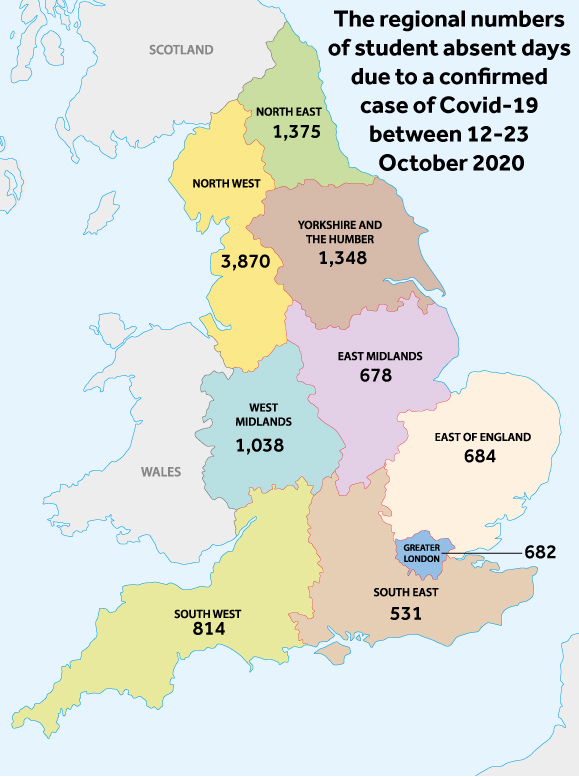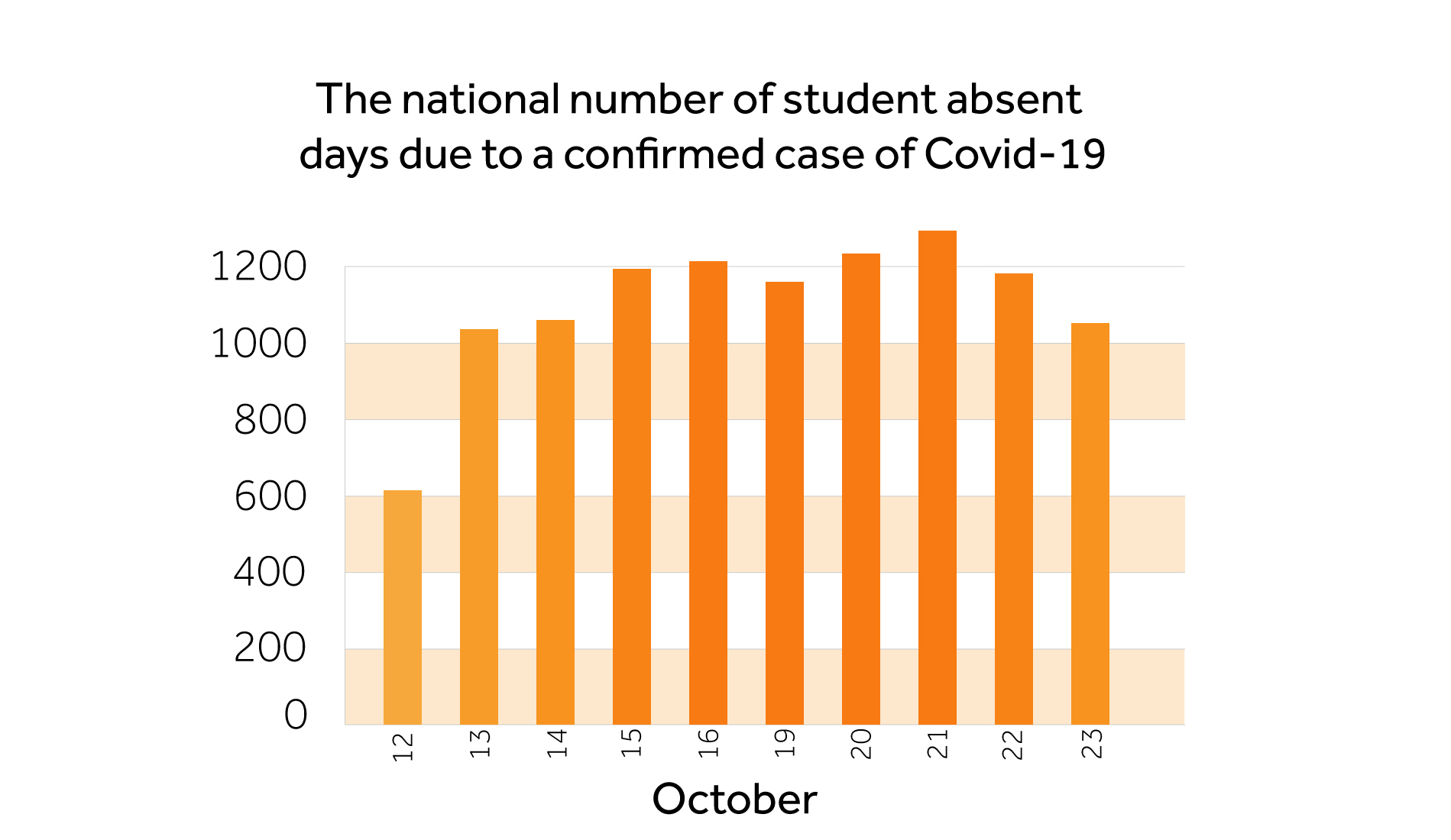North West hit three times harder by Covid absences

The North West has been hit three times as hard as any other region in England by Covid-related absences from college, new figures show.
In the two weeks up to the October half term, the North West recorded more than 259 cases every day of students missing college because they had tested positive, with a peak of 496 on 15 October. The next hardest-hit region, the North East, had more than 88 cases every day, with a peak of 163 on 21 October.
According to data shared with Tes by the Department for Education in response to a Freedom of Information Request, covering 12 October to 23 October, there were more than 11,000 missed college days owing to a positive Coronavirus test.
The number of students missing classes exceeded 1,000 on nine of the 10 days in the fortnight before half term.

The exclusive data shows that 21 October had the highest number of absences nationally with 1,294 students absent from college following a positive test.
Colleges in the North West had the highest number of absence days, with 4,063 recorded across the 10 days - followed by the North East at 1,537, and Yorkshire and the Humber with 1,425 absence days.
Ofsted annual report: What it says about colleges
FE commissioner’s annual report: What you need to know
Background: 94% of further education colleges ‘fully open’
The DfE began to gather data for Covid-related absences from all settings from 12 October. In the week commencing 26 October, response rates from colleges declined, which the DfE said was owing to the half-term break. Response rates from colleges varied but were generally high.

Salsabil Elmegri, vice-president for further education at the NUS students’ union, said that the government had failed to put measures in place that would have significantly reduced the transmission rate of Covid in FE settings.
She said: “The government has failed to deliver a functioning test, trace and isolate system. It also decided against investing in “Nightingale” teaching-space provision that would have expanded college campus premises, truly accessible digital education in FE, and the standardised extension of college holidays - all of which would have significantly reduced the transmission rate of Covid in FE settings.
“The disruption to FE students’ education as a result of this inaction has been enormous and has impacted disadvantaged students the most. We reiterate our call on the Westminster government to follow the lead of the Welsh government and cancel all exams for summer 2021 and begin to invest immediately in a funded, accessible and lifelong FE system.”
‘Disruption to learning’
David Hughes, chief executive of the Association of Colleges, said: “These figures confirm that a large number of students have suffered disruption to their learning. Colleges have worked hard to ensure that students can carry on studying at home, but the digital divide means that will be challenging for students without a digital device, internet access or a suitable space at home to work in.
“The government has recognised that this needs to be taken into account in this academic year’s qualifications so that every student can be fairly assessed, however disrupted their learning has been.”
A Department for Education spokesperson said: “Colleges have been doing a fantastic job making sure that their learning environments are safe and providing remote learning so as many students as possible can continue their studies.
“Overall, as a proportion of all students, the numbers of students being reported as unable to attend having tested positive for Covid-19 remains very small, although some colleges will inevitably be impacted more than others due to localised factors.
“We are continuing to work closely with colleges to ensure that disruption to education and training is minimised.”
You need a Tes subscription to read this article
Subscribe now to read this article and get other subscriber-only content:
- Unlimited access to all Tes magazine content
- Exclusive subscriber-only stories
- Award-winning email newsletters
Already a subscriber? Log in
You need a subscription to read this article
Subscribe now to read this article and get other subscriber-only content, including:
- Unlimited access to all Tes magazine content
- Exclusive subscriber-only stories
- Award-winning email newsletters
topics in this article



